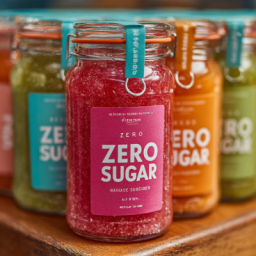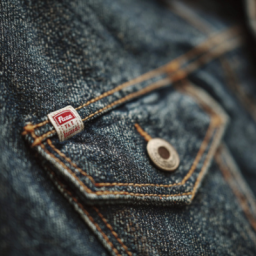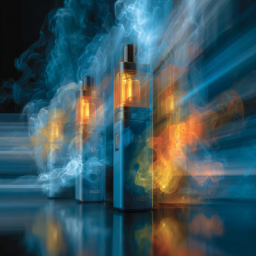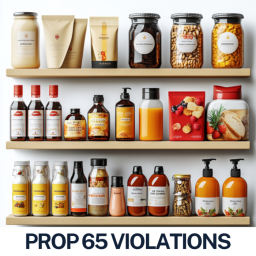
The following is a summary of relevant, notable Class Action Lawsuits that were filed during July 2025. Below is a summary of the plaintiff’s allegations. To request a copy of a particular complaint or for queries or further discussion, you’re welcome to reach out via email at [email protected].
What is a Class Action?
A class action is a type of lawsuit where one or more plaintiffs file on behalf of a larger group with similar claims. In the food and beverage sector, class actions often arise from misleading labels, deceptive advertising, or non-compliant ingredients. These lawsuits can result in major financial penalties and brand damage. Proactively monitoring compliance and emerging litigation trends is essential to reducing risk.
1. Misleading Labeling of Farmed Salmon Products with Artificial Color Additives
Plaintiff: Mark Berard
Defendant: Colewillaidan, LLC d/b/a Cole’s Seafood
Product Focus: Canned Patagonian Smoked Salmon (multiple varieties)
Summary:
Plaintiff alleges that Colewillaidan, LLC falsely marketed and sold its canned salmon products as naturally pink, when in fact the farm-raised salmon derive their coloring from the artificial color additive astaxanthin. According to the complaint, all of Cole’s farmed salmon is raised in Chilean net pens and would otherwise be grey or white if not for the inclusion of color additives in their feed. Federal law (21 C.F.R. § 73.35(d)(3); § 101.22(k)(2)) and California law (Health & Safety Code § 110740 and § 110795) require that such additives be disclosed on product labeling—but the defendant allegedly omitted this information across all varieties of its products.
Plaintiff purchased one such product in June 2024 from a Target in Los Angeles and relied on its labeling, which depicted vibrantly pink salmon with no disclosure of color additives. Plaintiff claims he would not have purchased the product—or would have paid less—had he known the fish was artificially colored. Independent testing by plaintiff’s counsel confirmed the presence of astaxanthin in one of the products.
Relief Sought:
Plaintiff seeks class certification, damages, restitution, injunctive relief to require proper disclosure of color additives, and attorneys’ fees and costs. The proposed classes include a nationwide class and a California subclass.
2. Misleading Claims About GLP-1 Levels and Weight Loss in Dietary Supplements
Plaintiff: Sarah Erwin
Defendant: The Clean Supps LLC (d/b/a Inno Supps)
Product Focus: GLP-1 Shred Stack (Trim Biome GLP-1, Night Shred GLP-1, Inno Shred GLP-1)
Summary:
Plaintiff filed a class action against Inno Supps, alleging the company falsely advertises its GLP-1 Shred Stack as a natural alternative to prescription GLP-1 agonists like Ozempic and Wegovy. The supplements—sold individually or bundled as the “GLP-1 Shred Stack”—are claimed to naturally boost GLP-1 hormone levels to suppress appetite and produce dramatic weight loss.
The complaint asserts that Inno Supps’ marketing is false and misleading. The products, composed of prebiotics, probiotics, and postbiotics, allegedly lack scientific evidence proving that they meaningfully increase GLP-1 levels or replicate the weight loss effects of prescription medications. The company is accused of leveraging the popularity of GLP-1 agonists while implying that its supplements deliver comparable benefits without the side effects.
Plaintiff alleges she relied on the deceptive advertising and paid a price premium for Inno Shred GLP-1. The supplements retail between $44.99 and $55.99 each, or $159.99 for the bundle.
Relief Sought:
Plaintiff seeks class certification, restitution, disgorgement of profits, public and private injunctive relief, attorneys’ fees, expert costs, and any further equitable relief deemed just. The proposed class includes all California purchasers of the GLP-1 Shred Stack products during the applicable limitations period.
3. Misleading “All Natural” and “Real Fruit” Claims on Oat Bars
Plaintiffs: Christina Hankins and Dimari Benavidez
Defendant: Simply Delicious, Inc. d/b/a Bobo’s
Product Focus: Strawberry- and Grape-flavored “PB&Js” Oat Bars
Summary:
Plaintiffs allege that Bobo’s markets its strawberry and grape “PB&Js” oat bars as “wholesome,” “simple,” “non-GMO,” “plant based,” “vegan,” and “nutrient dense,” with “real fruit” filling—conveying that the bars are healthy and conducive to well-being. In truth, each 60 g bar contains 15–16 g of added sugars (cane sugar, brown rice syrup, rice syrup), alone constituting one-third to two-thirds of daily added-sugar limits recommended for children and up to one-third of the (already elevated) FDA daily value for adults. Plaintiffs claim these labeling and marketing statements mislead reasonable consumers and enabled Bobo’s to charge a premium.
Relief Sought:
Class certification; actual, statutory, and/or compensatory damages; restitution and disgorgement of ill-gotten gains; injunctive relief (including front-label disclosures of added sugar); attorneys’ fees and costs; and such further relief as the Court deems appropriate. The proposed California class includes all persons who purchased these PB&J oat bars during the statute-of-limitations period.
4. Misleading “Wild Blueberries” Label on Dried Fruit Product
Plaintiff: Natasha Jones
Defendant: Mariani Packing Co., Inc.
Product Focus: 3.5 oz bags of dried “Wild Blueberries”
Summary:
Plaintiff alleges that Mariani Packing Co. misleadingly markets its dried “Wild Blueberries” as though they contain only dried blueberries, when in fact the product includes significant amounts of added sugar, corn syrup, and flavoring. The complaint highlights that over 50% of the product’s calories are from added sugars—approximately 20 grams per serving—equivalent to 40% of the FDA’s Daily Value.
Plaintiff contends that the product is “misbranded” under New York law, because the labeling omits any front-facing disclosure that it is sugar-infused or sweetened, and instead uses a prominent “Wild Blueberries” claim along with imagery of fresh blueberry bushes. This misleads reasonable consumers into believing they are purchasing a healthy, minimally processed dried fruit.
Relief Sought:
Plaintiff seeks class certification; actual damages based on the price premium paid; and any further relief deemed just and proper by the court. Plaintiff expressly waives statutory penalties, minimum statutory recovery, punitive damages, and full value recovery. The proposed class is limited to New York citizens who purchased the product for personal consumption within the statute of limitations.
5. Misleading “Smoked” Labeling on Almond Products
Plaintiff: Katrina Kidd
Defendant: Blue Diamond Growers
Product Focus: Blue Diamond Almonds – “Smokehouse” and “Bold” smoked varieties
Summary:
Plaintiff alleges that Blue Diamond Growers falsely markets its smoked almond products—specifically its “Smokehouse” and “Bold” varieties—as containing real smoke flavor or being prepared using traditional smoking methods. In reality, the products are flavored using smoke flavoring additives and not by actual smoking over wood or similar materials.
The complaint claims that the labeling misleads reasonable consumers who associate the term “smoked” with a specific method of preparation involving real smoke, which imparts unique taste and quality characteristics. The products allegedly do not contain any ingredients that are smoked or prepared with genuine smoke, but rather include artificial or natural smoke flavorings not clearly disclosed.
Relief Sought:
Plaintiff seeks class certification; actual, statutory, and punitive damages; disgorgement of profits; restitution; attorneys’ fees and costs; and all other relief the Court deems appropriate. The proposed class consists of New York consumers who purchased the products within the applicable limitations period.
6. Misleading “No Artificial Preservatives” Claim on Breakfast Bars
Plaintiff: Cristian Luis, individually and on behalf of all others similarly situated
Defendant: CVS Pharmacy, Inc.
Product Focus: Gold Emblem breakfast bar products labeled “No Artificial Preservatives”
Summary:
Plaintiff brings a California consumer class action alleging that CVS Pharmacy, Inc. falsely markets its Gold Emblem breakfast bar products as containing “No Artificial Preservatives.” In reality, the products contain manufactured citric acid—an artificial preservative widely used in food manufacturing.
The complaint asserts that this labeling misleads reasonable consumers into believing the products are preservative-free and healthier, when in fact they contain synthetic additives. Plaintiff claims he and other class members paid a price premium for a product they believed to be more natural.
Relief Sought:
Plaintiff seeks certification of the proposed class and appointment as class representative, along with an order declaring this a proper class action. He requests restitution and disgorgement of all profits and unjust enrichment obtained by Defendant through its allegedly unlawful, unfair, and fraudulent practices. Plaintiff further seeks injunctive relief to stop the misleading labeling and require CVS to engage in a corrective advertising campaign. He also requests monetary damages calculated independently from restitution, pre- and post-judgment interest on all amounts awarded, attorneys’ fees and litigation costs, and any other relief the Court may deem just and proper.
7. Kratom Products Allegedly Marketed Without Addiction Warnings
Plaintiff: Shelah Palmer
Defendant: Mitra-9 Brands, LLC
Product Focus: Kratom-based seltzers, powders, and shots
Summary:
Plaintiff brings a class action alleging that Mitra-9 Brands, LLC falsely and deceptively markets its kratom products without disclosing that the active ingredients operate on the same opioid receptors in the brain as morphine and its analogs. The complaint alleges that while kratom is sold in various forms—such as powders, capsules, seltzers, and shots—the labeling and marketing mislead consumers into believing the products are safe and “all natural,” omitting warnings about their opioid-like properties, addiction potential, and withdrawal symptoms.
Plaintiff contends that consumers would not reasonably expect over-the-counter kratom products sold in gas stations and convenience stores to pose risks similar to substances like heroin, oxycodone, or fentanyl. The lawsuit also claims Mitra-9 exploits public ignorance and uses its packaging to attract unsuspecting and vulnerable users.
Relief Sought:
Plaintiff seeks class certification and designation as class representative, a declaration that Mitra-9’s conduct violated applicable consumer protection laws, compensatory and punitive damages, restitution, prejudgment interest, injunctive relief prohibiting continued misleading practices, attorneys’ fees and costs, and any further relief deemed just and proper by the Court.
8. Goli Accused of Misleading Consumers About Melatonin Dosage in Dreamy Sleep Gummies
Plaintiff: Michael Ring
Defendant: Goli Nutrition Inc.
Product Focus: Dreamy Sleep Gummies (Melatonin supplement)
Summary:
Plaintiff Michael Ring has filed a proposed class action lawsuit against Goli Nutrition Inc., alleging deceptive marketing and packaging practices related to its Dreamy Sleep Gummies. Each bottle of the product is prominently labeled as containing “60 Gummies” and “5mg Melatonin per serving,” giving the impression that the bottle offers 60 doses of 5mg melatonin. However, the complaint states that the actual serving size is two gummies, resulting in only 30 servings per bottle — half of what a reasonable consumer would expect based on the front label.
The lawsuit claims this packaging practice is intentionally misleading, designed to appeal to value-conscious consumers who believe they are receiving 60 effective servings of melatonin. Instead, they receive just 30, without any clear front-label disclosure that the serving size is two gummies. The action outlines a historical and regulatory context surrounding deceptive packaging practices, citing prior legal efforts to ensure accurate labeling of quantity and dosage in consumer products.
Relief Sought:
Plaintiff seeks certification of the class, appointment as class representative, and an award of actual damages. No statutory penalties are claimed — rather, Plaintiff demands full value compensation for all purchasers, including the difference between what was promised and what was received. The suit requests a jury trial on all triable issues.
9. Misleading Protein Claims in Bone Broth Packaging: Ross v. Barebones Ventures, LLC
Plaintiff: Janet Ross
Defendant: Barebones Ventures, LLC,
Product Focus: Bone broth
Summary:
Plaintiff Janet Ross filed a class action against Barebones Ventures, LLC, alleging that the company falsely and deceptively marketed its bone broth products. The complaint asserts that Bare Bones misleads consumers by:
- Improperly labeling the net quantity on its packaging using both fluid and gram measurements, in violation of FDA regulations;
- Representing a 454g container as a single serving, despite FDA Reference Amounts Customarily Consumed (RACCs) for soups being 245g;
- Displaying protein content as “20g per serving,” when in fact the 20g refers to the entire container, not a standard serving size;
- Creating a false impression that the product contains more protein per serving than competitors.
Plaintiff contends that this labeling practice misleads reasonable consumers who are seeking high-protein foods and are likely to believe that the product delivers 20 grams of protein per standard serving. The complaint includes consumer research showing that demand for high-protein products is growing, and asserts that consumers like the plaintiff were misled into paying a price premium for the product. Additionally, the complaint highlights inconsistent recipe guidance on the company’s website—such as suggesting 8 oz. of broth serves four people—which contradicts the labeled serving size.
Relief Sought:
Plaintiff seeks class certification, compensatory, statutory, and punitive damages, restitution, injunctive relief, prejudgment interest, attorney’s fees, and all other just and proper relief.
10. Class Action Lawsuit: Apple & Eve Misleading “100% Juice” Label
Plaintiff: Lanita Stinnie
Defendant: Apple & Eve LLC
Product Focus: Apple & Eve 6.75 oz juice boxes labeled “100% Juice” or “Apple Juice”
Summary:
Plaintiff Lanita Stinnie filed a class action complaint against Apple & Eve LLC, alleging deceptive marketing practices concerning its 6.75 oz juice boxes, which are prominently labeled as “100% Juice” and “Apple Juice” above imagery of fresh apples. The lawsuit claims this labeling misleads consumers by concealing the presence of synthetic flavoring, specifically L-malic acid, which is chemically manufactured from petroleum-based sources and not derived from natural fermentation. The complaint details the chemical production pathway of L-malic acid and argues that its inclusion violates state labeling laws, as consumers seeking natural beverages would not reasonably expect artificial ingredients in a product advertised as “100% Juice.” As a result, consumers paid a premium price under the false impression the juice was free from artificial additives.
Prayer for Relief:
Plaintiff seeks an order certifying the class action, naming her as the class representative, and appointing her counsel to represent the class. She further requests actual damages on behalf of the class for the price premium paid due to the alleged misrepresentations. The relief sought expressly excludes statutory penalties, minimum recoveries, full value damages, or punitive damages, focusing instead on compensation for the actual economic harm suffered by consumers.
11. Misleading “Texas Original” Branding Sparks Class Action Against Reily Foods Company
Plaintiff: Lakema Tate
Defendant: Reily Foods Company
Product Focus: Carroll Shelby’s Chili Kits and Taco Seasoning Products
A class action lawsuit has been filed by Lakema Tate against Reily Foods Company, alleging deceptive marketing practices related to its Carroll Shelby’s line of chili and taco seasoning products, including Texas Chili, Chicken Chili, Taco Seasoning, and Birria Taco Seasoning. The complaint centers on the use of the phrase “THE TEXAS ORIGINAL” on product packaging, which allegedly misleads consumers into believing the products are manufactured in Texas. In reality, the products are produced in Louisiana. The Plaintiff asserts that this misrepresentation has deceived California consumers and induced purchases based on false geographic origin, in violation of California’s consumer protection statutes. The lawsuit seeks to stop the alleged misrepresentation and secure redress for purchasers who were misled.
Prayer for Relief:
The Plaintiff seeks certification of the class and appointment as class representative, as well as a declaration that Defendant is financially responsible for notifying class members and that it violated California’s consumer protection laws. Remedies requested include damages under the CLRA, restitution, disgorgement, injunctive relief to correct the Texas-origin misrepresentation, and a corrective advertising campaign. The Plaintiff also seeks attorneys’ fees, costs, prejudgment and post-judgment interest, and any additional relief the court deems appropriate.
12. LMNT Electrolyte Drink Mix Class Action
Plaintiff: Joseph Thomas
Defendant: DRINK LMNT, Inc.
Product Focus: Flavored electrolyte drink mix powders labeled as “No Artificial Ingredients,” “All Natural Ingredients,” “No Dodgy Ingredients,” and “Paleo-Keto Friendly.”
Summary:
Plaintiff Joseph Thomas filed a nationwide class action lawsuit against Drink LMNT, Inc., alleging that the company misled consumers by marketing its flavored electrolyte drink mixes with claims such as “No Artificial Ingredients” and “Paleo-Keto Friendly.” Despite these representations, the complaint asserts that the products contain maltodextrin—a highly processed and synthetic additive—not disclosed on the label or packaging. The plaintiff claims that consumers were deceived into believing the products were free of artificial components, when in fact the inclusion of maltodextrin contradicts these representations. The suit seeks damages for the harm caused by these misleading practices and challenges the company’s advertising and marketing strategies.
Prayer for Relief:
The plaintiff and putative class request class certification and appointment of class counsel under Rule 23 of the Federal Rules of Civil Procedure. They seek findings of liability and judgment against Drink LMNT, Inc. for violations of Florida’s and Nevada’s deceptive trade practices statutes, as well as unjust enrichment. The relief sought includes restitution, disgorgement, compensatory damages, attorneys’ fees, pre-judgment interest, and injunctive relief to stop ongoing misrepresentations. The plaintiff also requests reimbursement for litigation costs and any other relief deemed just and proper by the court.
13. Barrales v. Century Snacks, LLC and Insignia Capital Group
Plaintiff: Tinamarie Barrales
Defendants: Century Snacks, LLC and Insignia Capital Group, L.P.
Product Focus: Snak Club “No Preservatives” Tajin Chili & Lime Corn and Peanuts products
Summary:
Plaintiff Tinamarie Barrales brings this class action lawsuit on behalf of all purchasers of Defendants’ Snak Club Tajin Chili & Lime Corn and Peanuts products marketed as containing “No Preservatives.” Plaintiff alleges that these claims are false and misleading because the products actually contain citric acid, a well-known preservative used in food products. According to the complaint, the misrepresentation deceives health-conscious consumers into paying a price premium, and provides Defendants with an unfair market advantage. The action seeks to hold Defendants accountable for deceptive labeling and unfair competition practices affecting consumers throughout California and the United States.
Prayer for Relief:
Plaintiff seeks class certification, appointment as class representative, and appointment of her counsel as class counsel. She requests declaratory relief finding that Defendants violated California’s consumer protection laws, and an injunction requiring Defendants to modify their labeling, advertising, and manufacturing practices. Additional relief includes monetary damages, restitution, disgorgement, statutory and punitive damages, attorneys’ fees and costs, pre- and post-judgment interest, and any other relief the Court deems just and proper.
14. Misleading “No Artificial Flavors” Claim Prompts Class Action Against Aldi
Plaintiff: Jansen Barron
Defendant: Aldi Inc. (New York)
Product Focus: Clancy’s Salt and Vinegar Kettle Cooked Potato Chips
Summary of the Action:
This class action lawsuit accuses Aldi Inc. of falsely labeling its Clancy’s Salt and Vinegar Kettle Cooked Potato Chips as containing “No Artificial Flavors.” The complaint alleges that the chips contain DL-malic acid—a synthetic flavoring agent derived from petroleum byproducts—despite Aldi’s representation that the product is free from artificial flavors. The Plaintiff argues that the inclusion of malic acid misleads consumers who seek to avoid artificial ingredients for health and dietary reasons. Supporting the complaint are studies and industry surveys demonstrating that a significant portion of consumers actively avoid artificial additives. The lawsuit claims Aldi’s practices exploit consumer trust and violate labeling laws by marketing a product as natural while using synthetic compounds to enhance flavor.
Prayer for Relief:
The Plaintiff requests certification of the class, appointment as class representative, and designation of class counsel. The prayer seeks actual damages—excluding penalties or statutory minimums—for consumers who purchased the misbranded chips. Additionally, Plaintiff asks for full restitution of the purchase price, possible punitive damages, and any further relief the Court finds appropriate. The relief is intended to address the deceptive labeling and prevent future consumer deception through Aldi’s continued use of artificial flavoring agents in products labeled as natural.
15. Kellogg’s® Froot Loops® with Marshmallows – Class Action Lawsuit Over Misleading Serving Size Claims
Plaintiff: Thomas Harvey
Defendants: WK Kellogg Co and Walmart Inc.
Product Focus: Kellogg’s® Froot Loops® with Marshmallows 16.2 oz.
Summary:
Plaintiff Thomas Harvey filed a class action lawsuit against WK Kellogg Co and Walmart Inc., alleging that the labeling of Kellogg’s® Froot Loops® with Marshmallows 16.2 oz. is materially misleading. Specifically, the lawsuit claims that the defendants falsely represented the number of servings per container by misrepresenting the metric mass equivalent of a 1⅓ cup serving as 39 grams, when independent lab testing determined it to be over 45 grams. This discrepancy allegedly results in the product containing fewer servings than advertised—approximately 15.33% fewer—and constitutes deceptive labeling. Plaintiff asserts that the misrepresentations violate New York General Business Law §§ 349 and 350 and related consumer protection statutes. The complaint provides detailed analysis of FDA regulations governing serving sizes, alleging the product’s nutrition facts panel (“NFP”) does not comply with federal guidance. Similar class actions involving overstated serving counts are cited in support.
Prayer for Relief:
Plaintiff seeks certification of the case as a class action, appointment of class counsel, and actual and statutory damages. The requested relief includes an order enjoining the defendants from engaging in deceptive practices regarding serving size labeling, restitution of improperly acquired profits, attorney’s fees and costs, pre- and post-judgment interest, and any additional relief deemed appropriate by the court.
16. False Advertising Class Action Against Walgreens Over Synthetic Flavoring in “Salt & Vinegar” Chips
Plaintiff: Timothy Lee
Defendant: Walgreen Co.
Product Focus: Nice! Salt & Vinegar Flavored Potato Chips
Summary: In this class action lawsuit filed in Dutchess County, New York, Plaintiff Timothy Lee alleges that Walgreen Co. falsely advertises its “Salt & Vinegar Flavored” Nice! brand potato chips as being flavored with natural vinegar. The complaint claims that while the front label evokes images of simple and honest ingredients like amber vinegar and coarse salt, the actual flavor comes primarily from synthetic malic acid—a lab-created compound not derived from vinegar. The complaint asserts that the labeling is misleading because malic acid is not naturally extracted and does not truthfully represent a “common or usual name” under applicable food labeling regulations. The lawsuit explains that malic acid, especially its DL-form, is synthetically manufactured from petrochemical sources, which contradicts the product’s natural messaging. Though the label lists “malt vinegar powder” as an ingredient, the plaintiff alleges it is included in a lesser amount than malic acid, which is mainly responsible for the chip’s sour flavor.
The complaint also emphasizes the widespread consumer aversion to artificial ingredients and their expectation that products labeled with specific flavors reflect those flavors in substance and source. Plaintiff claims that Walgreens deceptively labeled the chips in violation of New York Agriculture and Markets Law § 201(1) and 1 N.Y.C.R.R. § 259.1(a), among others. It asserts that had the chips been accurately labeled, they would have been sold at a lower price point. The complaint supports its damages theory through economic methodologies such as conjoint analysis to quantify the value associated with the challenged marketing claims.
Prayer for Relief
WHEREFORE, Plaintiff, individually and on behalf of all similarly situated consumers, seeks the following relief: For an order certifying this case as a class action, appointing Plaintiff as the class representative and his counsel as class counsel; For actual damages only, expressly excluding penalties, statutory minimums, full value damages, and punitive damages as may be prohibited by law.
17. Maria Nelson v. Flowers Bakeries, LLC
Plaintiff: Maria Nelson
Defendant: Flowers Bakeries, LLC
Product Focus: Nature’s Own
Summary :
Maria Nelson filed a class action complaint against Flowers Bakeries, LLC, alleging deceptive labeling and advertising of the company’s Nature’s Own bread products. The front label of the product states:
“Our Promise. NEVER any artificial preservatives, colors or flavors and NO high fructose corn syrup.”
Nelson argues this representation is false and misleading because the bread contains ascorbic acid, which she alleges is a synthetic artificial preservative. She asserts that reasonable consumers are misled into believing the bread is free from artificial preservatives, especially given the prominent “Never any artificial preservatives” claim.
The complaint is brought under the California Consumers Legal Remedies Act (CLRA), the Unfair Competition Law (UCL), and the False Advertising Law (FAL), as well as for breach of express warranty. Nelson purchased the product in California and claims she relied on these representations when doing so.
Prayer of Relief:
Plaintiff, individually and on behalf of all others similarly situated, respectfully requests that the Court declare this action a proper class action, certify the proposed Class, appoint Plaintiff as Class Representative, and designate undersigned counsel as Class Counsel. Plaintiff further seeks an order awarding restitution and disgorgement of all profits and unjust enrichment obtained through Defendant’s alleged unlawful, unfair, and fraudulent business practices; injunctive relief to prohibit Defendant from continuing such practices and to require a corrective advertising campaign; and damages distinct from restitution. Plaintiff also requests an award of reasonable attorneys’ fees and litigation costs, both pre- and post-judgment interest on all monetary awards, and such other and further relief as the Court may deem just and proper.
18. Slack-Fill Class Action: Wholesome Allulose Sweetener
Plaintiff: Simon Oh
Defendant: Sweet Oak Parent LLC d/b/a Wholesome
Product Focus: Allulose Zero-Calorie Sweetener (12 oz)
Summary:
Plaintiff brings a class action against Sweet Oak Parent LLC, doing business as Wholesome, alleging that its Allulose Zero-Calorie Sweetener is deceptively sold in oversized, opaque containers that appear substantially filled but are actually over half empty. Plaintiff claims that Wholesome intentionally uses non-functional slack-fill to mislead consumers into believing they are receiving more product than they actually are, in violation of the California Consumers Legal Remedies Act (CLRA), Unfair Competition Law (UCL), and False Advertising Law (FAL). The packaging lacks any fill line or visible indicator of true contents, and the underfilling serves no functional purpose. The complaint alleges that this conduct harms consumers who pay premium prices for largely empty containers and harms competitors who make honest disclosures. Plaintiff supports the allegations by citing numerous other similar slack-fill cases where courts have upheld consumer claims and certified class actions under comparable facts. Plaintiff seeks injunctive and monetary relief for the deceptive practices that have caused measurable economic injury to consumers across California and beyond.
Prayer for Relief:
Plaintiff, individually and on behalf of all others similarly situated, respectfully requests that the Court certify this case as a class action, appoint Plaintiff as the Class Representative, and designate Plaintiff’s counsel as Class Counsel. Plaintiff further seeks an order enjoining Defendant from continuing to deceptively package and label the Product as alleged. Plaintiff seeks damages, restitution, and/or disgorgement in amounts to be determined at trial, along with pre- and post-judgment interest at the maximum rate allowed by law. Plaintiff also requests an award of reasonable attorneys’ fees and costs, and such other and further relief as the Court may deem just and proper.
19. False “No Preservatives” Labeling Class Action: LIV Hydration Multiplier
Plaintiff: Susan Cirrito
Defendant: The LIV Group Inc.
Product Focus: Wild Berry “Hydration Multiplier” powdered drink mix
Summary:
Plaintiff Susan Cirrito brings this putative class action against The LIV Group Inc. for falsely advertising its “Hydration Multiplier” powdered drink mix as containing “No Preservatives.” Despite this prominent front-label claim, the fine print ingredient list discloses compounds such as silicon dioxide and citric acid—synthetic substances known to act as preservatives by delaying deterioration, masking spoilage, and extending shelf life. The complaint details how the presence of these additives directly contradicts the marketing claim and deceives health-conscious consumers who seek to avoid synthetic preservatives and ultra-processed foods. Plaintiff outlines the historical context of consumer mistrust in food additives, citing modern consumer behavior studies showing a willingness to pay more for clean-label products. The case asserts that the LIV product is misbranded under state law and that consumers are misled into purchasing a product based on false promises. The lawsuit points to scientific processes showing that silicon dioxide is synthetically manufactured through industrial chemical reactions—not derived naturally from rocks or sand as consumers might expect—and argues that these ingredients functionally serve as preservatives in powdered drink mixes, particularly when considering environmental degradation risks. As such, Plaintiff and similarly situated consumers seek redress for false advertising and misrepresentation in violation of applicable consumer protection laws.
Prayer for Relief:
Plaintiff respectfully demands a jury trial on all issues and seeks an order declaring this case a proper class action, certifying Plaintiff as Class Representative and the undersigned as Class Counsel. Plaintiff further seeks actual damages (excluding penalties, statutory minimums, full value damages, and punitive damages, as may be prohibited), and any other relief that the Court deems just and appropriate.
20. Case Summary: Del Pizzo v. SmartyPants Inc.
Plaintiff: Regina Del Pizzo
Defendant: SmartyPants Inc.
Product Focus: “Women’s Organic Multi & Omegas” Gummies
Summary:
Plaintiff alleges that SmartyPants Inc. falsely advertised its “Women’s Organic Multi & Omegas” gummies by prominently claiming that each bottle contains “90 Gummies” and delivers “171 mg Omega-3.” However, the fine print reveals that a single serving consists of four gummies, yielding only 22 total servings per bottle — not 90 as consumers might expect. Plaintiff claims that this deceptive labeling misleads consumers into believing each gummy delivers the full Omega-3 dose, when in fact, one must consume four gummies daily. The product is alleged to be “misbranded” under New York and Agriculture and Markets Law due to failure to disclose this information clearly and prominently on the front label. Comparisons are drawn to compliant labels by competitors like Nordic Naturals, which disclose the “per serving” amount on the front of the bottle. Plaintiff asserts that the misleading label inflates the perceived value and justifies a premium price of approximately $24.99. Damages will be determined through economic analysis, including conjoint and hedonic pricing methods.
Prayer for Relief:
Plaintiff respectfully requests that the Court declare this case a proper class action, certify the proposed class, appoint Plaintiff as class representative, and designate the undersigned as Class Counsel. Plaintiff further seeks an award of actual damages for herself and all class members, excluding statutory penalties, minimum statutory recoveries, full value damages, or punitive damages that may be prohibited by law. Plaintiff also demands a jury trial on all issues so triable.
21. Gianne v. Tru-Nut Company
Plaintiff: Natalie Gianne
Defendant: CRE Online Ventures LLC dba The Tru-Nut Company
Product Focus: Tru-Nut Peanut Butter Powder – Chocolate, Cinnamon, Coconut, Maple, and Original flavors
Summary:
Natalie Gianne filed a class action lawsuit against CRE Online Ventures LLC, doing business as The Tru-Nut Company, alleging that the company’s Peanut Butter Powder products are falsely and misleadingly labeled. The complaint focuses on the front-label protein claims, which do not account for digestibility as required under FDA regulations. Specifically, Tru-Nut allegedly fails to include the corrected amount of protein per serving (adjusted for protein digestibility) and omits the corresponding % Daily Value—a practice that the plaintiff claims renders the labeling unlawful and deceptive. The products, sold in multiple flavors including chocolate, cinnamon, coconut, maple, and original, were marketed throughout California. The lawsuit seeks to represent a class of California consumers who purchased the products believing in their advertised protein content and were misled by the labeling.
Prayer for Relief:
Plaintiff respectfully requests that the Court certify the proposed Class, declare that Defendant violated the CLRA and/or was unjustly enriched and/or breached an implied warranty, and award actual, compensatory, or statutory damages in an amount to be determined at trial. Plaintiff further seeks injunctive relief as permitted by law, including enjoining Defendant from continuing the unlawful practices described herein and requiring Defendant to engage in a corrective advertising campaign. Plaintiff also requests an award of reasonable attorneys’ fees and litigation costs, pre- and post-judgment interest on any awarded sums, and any such other relief as the Court may deem just and proper.
22. Simon Oh v. Target Brands, Inc. – Class Action for Deceptive Slack-Fill Packaging
Plaintiff: Simon Oh
Defendant: Target Brands, Inc., a Minnesota corporation, doing business as Good & Gather
Product Focus: Good & Gather 1.25 oz Freeze-Dried Peach Slices
Summary:
Simon Oh brings this action against Target Brands, Inc., doing business as Good & Gather, on behalf of himself and all others similarly situated in California. Plaintiff alleges that Defendant deceptively markets and sells its 1.25 oz “Freeze-Dried Peach Slices” in opaque, oversized containers that contain unlawful amounts of non-functional “slack-fill,” rendering the packaging misleading. The front label does not include any indicator of how much product is inside, such as a fill line, and Defendant allegedly underfills the containers to reduce costs and mislead consumers into paying premium prices for a deceptively small quantity of product. Plaintiff contends this conduct constitutes violations of the California Consumers Legal Remedies Act (CLRA), the Unfair Competition Law (UCL), and the False Advertising Law (FAL), and that it harms both consumers and fair competition. The complaint references multiple cases in which similar slack-fill allegations were found meritorious and appropriate for class treatment.
Prayer for Relief:
Plaintiff, individually and on behalf of all others similarly situated, prays for judgment and relief on all causes of action as follows: an order certifying the Class and appointing Plaintiff as class representative and counsel as class counsel; injunctive relief enjoining Defendant from continuing to package and/or label the Product in the deceptive manner alleged; compensatory damages to be determined at trial, along with pre- and post-judgment interest at the maximum allowable rate; restitution and/or disgorgement in an amount to be determined at trial; reasonable attorneys’ fees and costs; and any other and further relief the Court deems just and proper.
23. Armando Plascencia v. Olympian Labs, Inc. – Class Action for Deceptive Protein Labeling
Plaintiff: Armando Plascencia, individually and on behalf of all others similarly situated
Defendant: Olympian Labs, Inc., an Arizona corporation
Product Focus: Pea Protein Powder
Summary:
Armando Plascencia brings this action against Olympian Labs, Inc., on behalf of himself and all others similarly situated in California, alleging that Olympian’s Pea Protein powder is misbranded and falsely advertised. The complaint asserts that Defendant prominently displays deceptive protein claims on the front label of the Products without including a corrected Recommended Daily Value (RDV) of protein that accounts for protein digestibility. Plaintiff alleges that this labeling practice misleads consumers regarding the true nutritional content and value of the product. These claims are brought under the California Consumers Legal Remedies Act (CLRA), and are also based on theories of unjust enrichment and breach of implied warranty.
Prayer for Relief:
Plaintiff, individually and on behalf of all others similarly situated, respectfully requests the Court to certify the Class; declare that Defendant violated the CLRA and/or was unjustly enriched and/or breached an implied warranty; award actual, compensatory, or statutory damages in an amount to be proven at trial; issue injunctive relief enjoining Defendant from continuing the unlawful practices and requiring corrective advertising; order Defendant to pay reasonable attorneys’ fees and litigation costs; award both pre- and post-judgment interest on any awarded amounts; and grant such other relief as the Court deems just and proper. Plaintiff also demands a trial by jury on any counts so triable.
24. Reed & Rabinowitz v. The J.M. Smucker Company
Plaintiffs: Diane Reed and Jana Rabinowitz
Defendant: The J.M. Smucker Company
Product Focus: Smucker’s Natural Fruit Spread products (including both jar and squeezable packaging across multiple fruit flavors)
Summary:
This is a consumer class action brought by Diane Reed and Jana Rabinowitz on behalf of themselves and similarly situated individuals against The J.M. Smucker Company. The lawsuit challenges the labeling, marketing, and sale of various Smucker’s Natural Fruit Spread products, which include flavors such as apricot, blackberry, blueberry, cherry, grape, orange marmalade, raspberry, strawberry, and others. The Plaintiffs allege that the products falsely advertise being “natural” and “made with ingredients from natural sources,” despite containing citric acid, which they claim is an artificial preservative. The complaint asserts violations of California’s Consumer Legal Remedies Act (CLRA), Unfair Competition Law (UCL), and False Advertising Law (FAL), as well as violations of New York General Business Law §§ 349 and 350. Additional claims include breach of express and implied warranty, negligent misrepresentation, and fraud. Plaintiffs argue that consumers were misled into believing the products contained only natural ingredients and were free from artificial preservatives.
Prayer for Relief:
Plaintiffs, individually and on behalf of all others similarly situated, request that the Court declare the action a proper class action and appoint them as Class Representatives; order restitution and disgorgement of all profits and unjust enrichment obtained through Defendant’s unlawful, unfair, and fraudulent business practices; award damages distinct from those calculated for restitution; award attorneys’ fees and litigation costs; order statutory damages of $50 per transaction under New York GBL § 349 and $500 per transaction under § 350 for New York class members; award both pre- and post-judgment interest on any amounts awarded; and grant any other relief the Court deems just and proper.
25. Mamadou Samassi v. Danone US LLC
United States District Court
Plaintiff: Mamadou Samassi
Defendant: Danone US LLC
Product Focus: Light & Fit Strawberry “Zero Sugar” Yogurt with the label “No Artificial Flavors or Sweeteners”
Summary:
This class action complaint alleges that Danone US LLC falsely advertises its Light & Fit “Zero Sugar” yogurt as containing “No Artificial Flavors or Sweeteners,” when in fact it contains “Reb M,” a steviol glycoside derived from stevia that is produced through fermentation and other industrial chemical processes. Although the product appears to target health-conscious consumers seeking natural, sugar-free alternatives, Plaintiff contends that the production method of Reb M involves synthetic techniques inconsistent with consumer expectations of natural ingredients.
The complaint highlights:
- Consumer trends showing increased demand for products without artificial ingredients.
- The history and cultural background of stevia use, particularly among the Guarani people.
- The modern industrial production methods of Reb M (e.g., fermentation, genetic engineering, enzymatic conversion, chemical clarification).
- How these methods deviate from what consumers understand to be “natural.”
- That these misleading representations led consumers to pay a premium price (approximately $1.79) for the product.
Prayer for Relief:
Certification of the class and appointment of Plaintiff and Plaintiff’s counsel as class representatives and counsel; An award of actual damages, specifically: Not as a penalty or minimum statutory recovery, including full value damages (but excluding punitive damages unless otherwise permitted).
26. Taylor Farms Retail Protein Labeling Class Action
Plaintiffs: Juan Vila, Arthur Schmidt, and Leslie Ruggiero
Defendants: Taylor Farms Retail, Inc. and Taylor Fresh Foods, Inc.
Product Focus: Taylor Farms’ chopped salad kits and similar food products, including Chipotle Ranch and Bacon Caesar varieties, among others
SUMMARY:
Juan Vila, Arthur Schmidt, and Leslie Ruggiero (“Plaintiffs”), on behalf of themselves and others similarly situated, bring this class action against Taylor Farms Retail, Inc. and Taylor Fresh Foods, Inc. (“Defendants”) for allegedly engaging in unlawful and deceptive practices in labeling and marketing of salad kits and other food products. Plaintiffs assert that Defendants prominently feature misleading protein claims on the front of packaging, such as “4g PROTEIN,” without including the required disclosure of the corrected amount of protein per serving based on the FDA-mandated Protein Digestibility Corrected Amino Acid Score (PDCAAS) in the Nutrition Facts Panel (“NFP”). Plaintiffs argue that this omission is a violation of federal law, including 21 C.F.R. §§ 101.9(c)(7)(i), 101.13(b), and 101.13(n), because it fails to inform consumers how much usable protein the product actually provides. The complaint explains that consumers are increasingly health-conscious and rely on protein claims to make purchasing decisions. However, because not all proteins are equal in their ability to meet human nutritional needs, a statement of total protein grams is insufficient and potentially misleading. The PDCAAS is necessary to determine the quality of protein, as it adjusts for digestibility and amino acid composition. Plaintiffs allege that Defendants failed to comply with this standard, misleading consumers into believing they were receiving more nutritional value than was actually present. Specifically, Plaintiffs claim that Defendants’ products contain as little as 40% of the labeled protein amount when corrected for digestibility, and that consumers paid a premium price based on these allegedly false and misleading statements.
Prayer for Relief: Plaintiffs, on behalf of themselves and all others similarly situated, respectfully request that the Court grant the following relief: certification of the proposed classes, including appointment of Plaintiffs’ counsel as class counsel; an order temporarily and permanently enjoining Defendants from continuing the unlawful, deceptive, fraudulent, and unfair business practices alleged; compensatory damages in an amount to be determined at trial, to the extent legally available; statutory damages where permitted; punitive damages where permitted; treble damages where applicable; restitution; pre- and post-judgment interest on any awarded amounts; reasonable attorneys’ fees and costs; and any other relief the Court deems just and proper.
27. Wilson v. Conagra Brands, Inc.
Plaintiff: Terrance Wilson, individually and on behalf of others similarly situated
Defendant: Conagra Brands, Inc.
Product Focus: Snack Pack pudding varieties, including Vanilla, Chocolate Vanilla, Banana Cream Pie, Butterscotch, and Tapioca
Summary:
Terrance Wilson (“Plaintiff”), individually and on behalf of all others similarly situated, by and through her attorneys, brings this action against Conagra Brands, Inc. (“Conagra” or “Defendant”) for violations of California’s Unfair Competition Law (Cal. Bus. & Prof. Code §§ 17500 et seq. and 17200 et seq.). Plaintiff alleges that Defendant falsely labeled and advertised several varieties of Snack Pack pudding as containing “no preservatives” when, in fact, they contain disodium phosphate—a chemical recognized by the FDA as a preservative. Plaintiff contends that this misrepresentation misled consumers into purchasing the products under the false impression that they were free from preservatives, thus paying a premium for what they believed to be healthier or cleaner food items. Plaintiff further alleges that Defendant’s labeling was intentionally deceptive, depriving consumers of accurate information required under California law and causing economic injury by inducing purchases that would not have occurred had the labeling been truthful. Plaintiff also asserts that Defendant’s conduct caused loss of money, time, and consumer confidence in product labeling.
Prayer for Relief:
Plaintiff, on behalf of himself and the Class and Sub-Class, requests the following relief: (a) An order certifying the Class and Sub-Class and appointing Plaintiff as Representative of the Class and Sub-Class; (b) An order certifying the undersigned counsel as Class and Sub-Class Counsel; (c) An order requiring Defendant to engage in corrective advertising regarding the conduct discussed above; (d) Actual damages suffered by Plaintiff and Class and Sub-Class Members as applicable or full restitution of all funds acquired from Plaintiff and Class and Sub-Class Members from the sale of misbranded Class Products during the relevant class period; (e) Punitive damages, as allowable, in an amount determined by the Court or jury; (f) Any and all statutory enhanced damages; (g) All reasonable and necessary attorneys’ fees and costs provided by statute, common law or the Court’s inherent power; (h) Pre- and post-judgment interest; and (i) All other relief, general or special, legal and equitable, to which Plaintiff and Class and Sub-Class Members may be justly entitled as deemed by the Court.
28. ZIMMERMAN v. CURE INC.
Plaintiff: Margot Zimmerman
Defendant: Cure Inc.
Product at Issue: Cure Electrolyte Drink Mix
Summary :
In this putative class action, Plaintiff Margot Zimmerman alleges that Cure Inc. misled consumers by falsely labeling its lemonade-flavored Electrolyte Drink Mix as containing “No Artificial or Synthetic Flavors, Sweeteners, Preservatives, Colors & Dyes.” Contrary to these claims, the product’s ingredient list discloses the presence of citric acid, a synthetic compound that, according to the Plaintiff, functions as a preservative and therefore renders the labeling materially false. Plaintiff contends that Cure’s labeling is designed to appeal to health-conscious consumers who actively avoid synthetic ingredients for personal or dietary reasons. The complaint argues that consumers rely on product labeling to make informed choices, and that claims such as “No Preservatives” are highly influential in purchasing decisions. Scientific and industry research is cited to support the position that citric acid extends shelf life and is commonly used for its preservative properties. Furthermore, the complaint explains that powdered drink mixes like the one sold by Cure are prone to microbiological risks due to their low moisture content, and the inclusion or omission of preservatives is therefore a material fact. Plaintiff asserts that she and other consumers paid a price premium for a product they believed to be free of synthetic preservatives and would not have made the purchase had they known the truth.
Prayer for Relief:
Plaintiff seeks to have the Court certify this action as a class action, appointing herself as representative of the proposed class and designating her legal counsel as class counsel. She requests an award of actual damages to compensate for the monetary losses suffered by consumers who purchased the falsely labeled product. The relief sought specifically excludes statutory penalties, minimum statutory recoveries, full-value damages, and punitive damages. Instead, the Plaintiff focuses on recovering the price premium paid by consumers based on the allegedly deceptive and misleading labeling practices of Cure Inc. The complaint demands a jury trial on all issues so that the class can be fairly heard and compensated for the harm caused by the misrepresentation.
Risk Reduction Tips for Food & Beverage Companies
- Color & Flavor Accuracy: Disclose color additives and synthetic flavor agents (e.g., astaxanthin, malic acid) to avoid misleading impressions of “natural” origins.
- Natural & Preservative Claims: Steer clear of absolute statements like “All Natural” or “No Artificial Preservatives” if products include citric acid, ascorbic acid, maltodextrin, or similar additives.
- Protein & Serving Size Compliance: Ensure protein content reflects digestibility-adjusted values required by FDA rules, and that serving sizes are not overstated on front labels.
- Sweetener & Sugar Transparency: Avoid positioning products as “Zero Sugar” or “Real Fruit” if added sugars, stevia derivatives, or sugar syrups are present.
- Geographic Branding: Geographic claims (e.g., “Texas Original”) must accurately reflect production location, not just branding heritage.
- Packaging Practices: Prevent slack-fill liability by ensuring package size matches contents or is justified, with fill lines or windows where appropriate.
- Dosage Clarity in Supplements: Align front-of-pack dosage claims with serving sizes. Consumers expect one gummy or capsule equals one dose unless disclosed otherwise.
For more insights or to receive any of the full complaints, contact us at [email protected].













